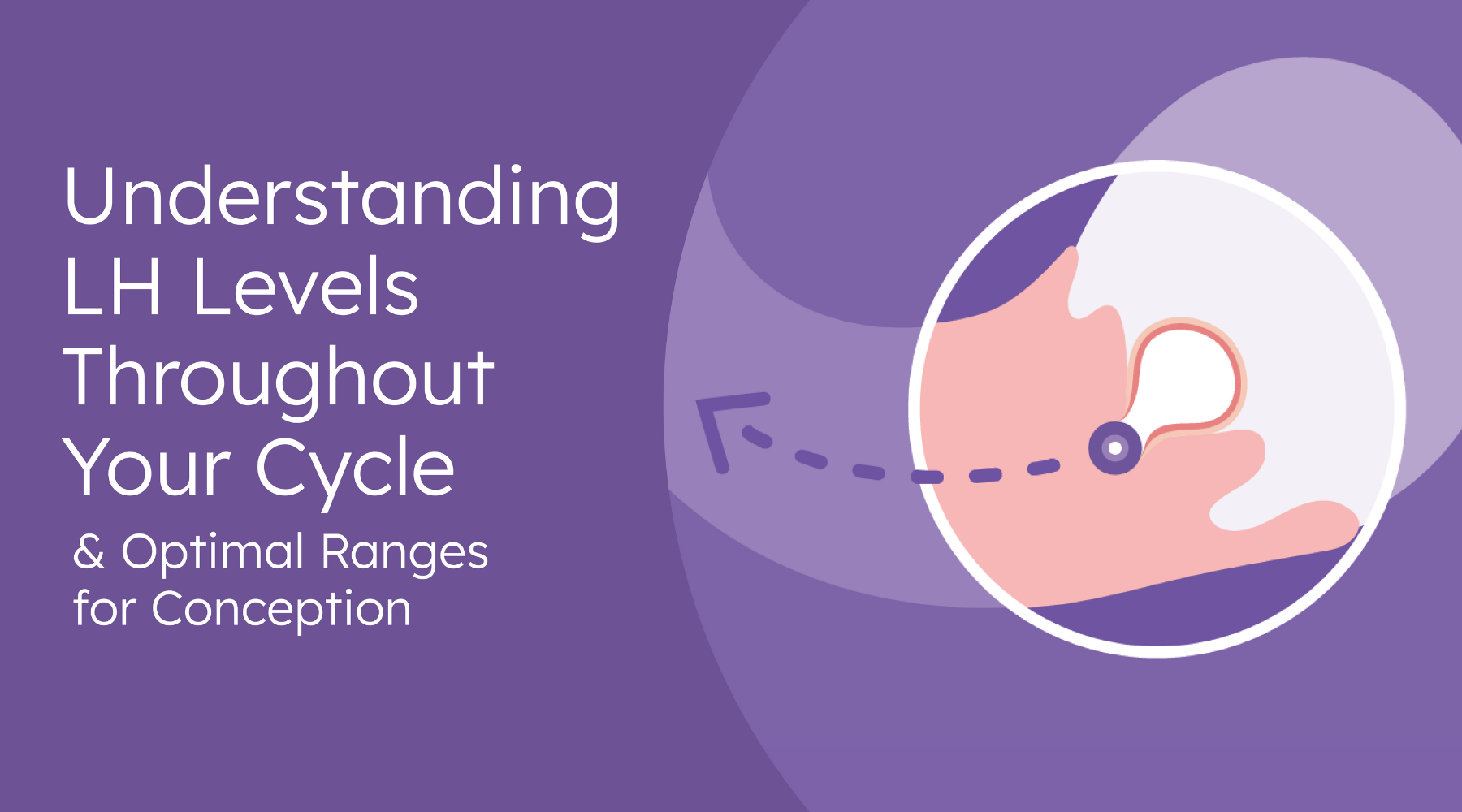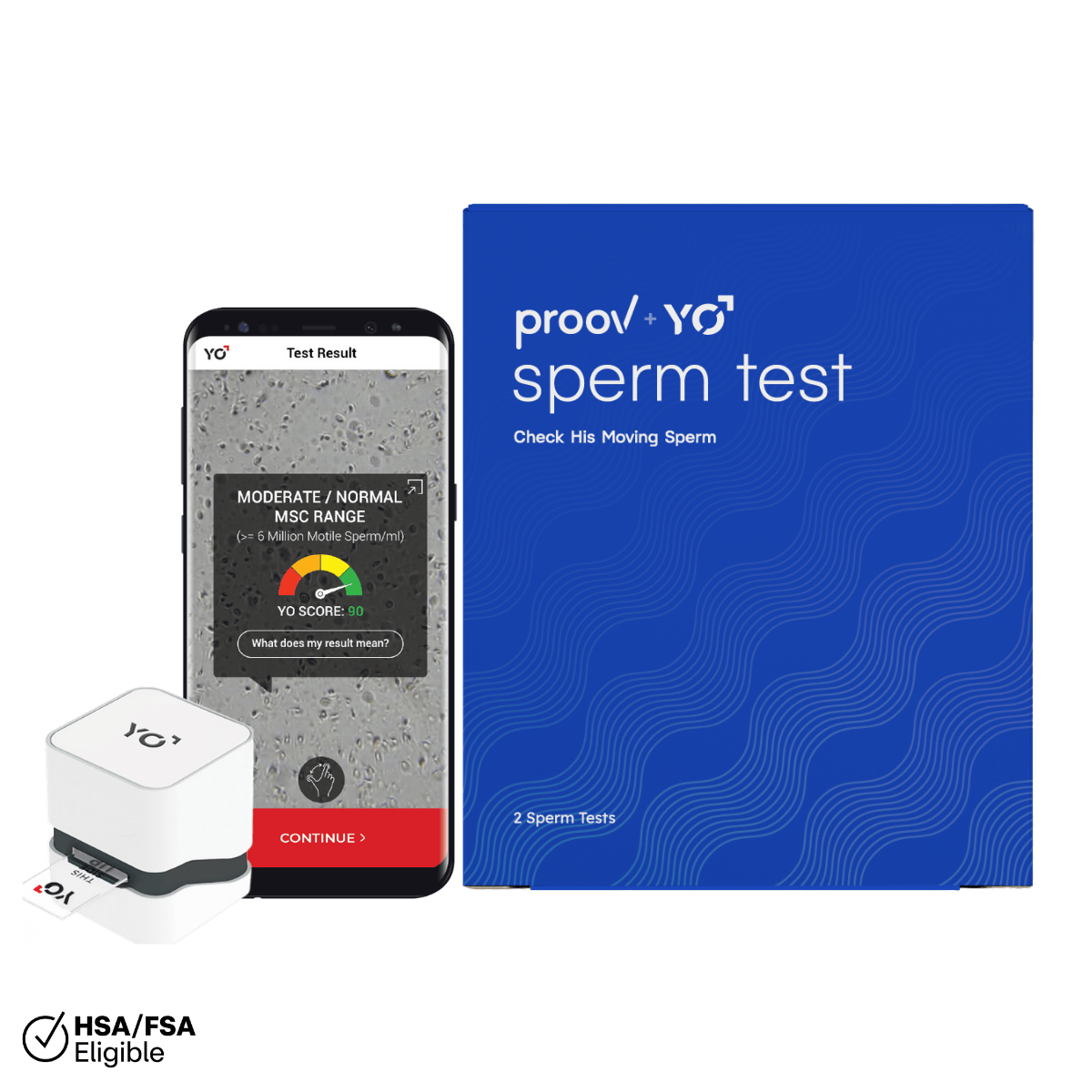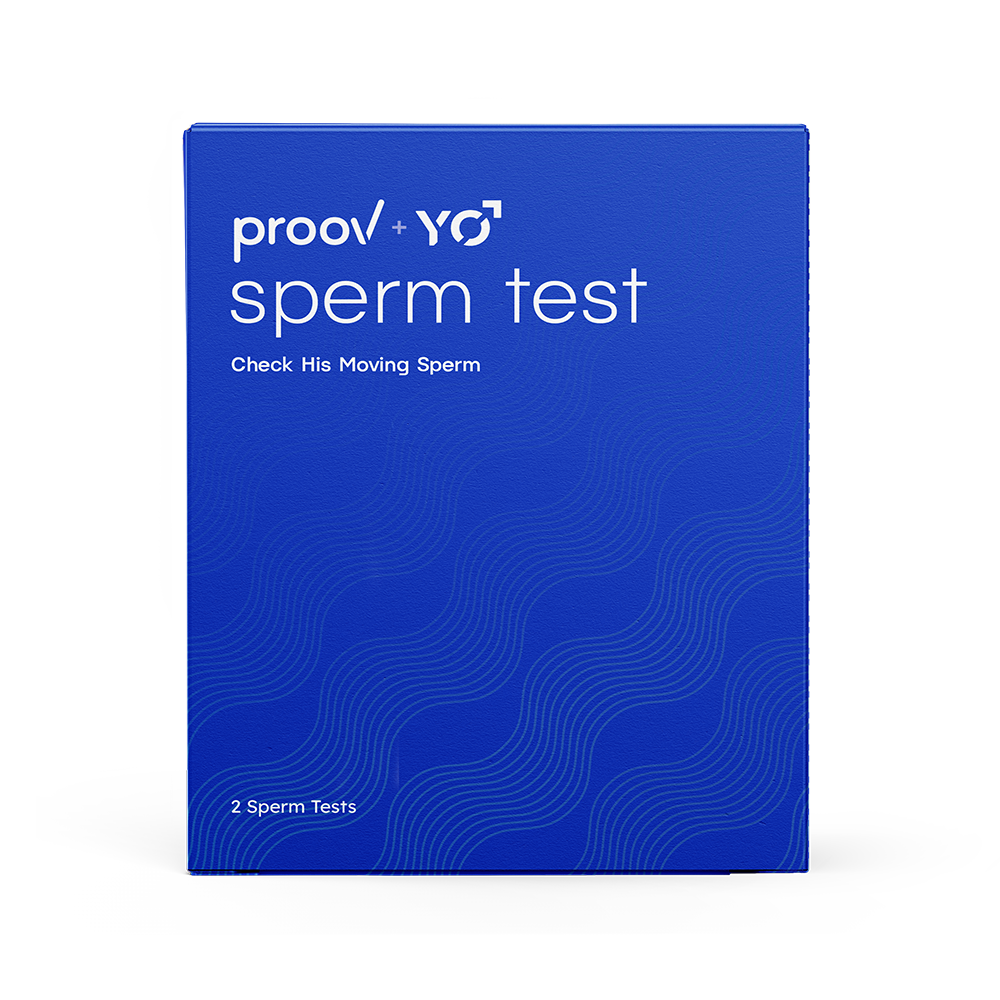Everybody has an intricate system of hormones that allow it to function as one system. Hormones control mood, growth and development, organ function, metabolism, and reproduction.
Hormones act as messengers from one organ system to another, and keep the entire body in sync. This makes them extremely important to stay balanced and healthy, so that we can feel our best and our body can function optimally.
We are certainly familiar with how much of an impact hormones have on the reproductive system (a big one!). There are several major reproductive hormones at work during one menstrual cycle and they come from two main places in the body: the brain and the ovaries.
The main reproductive hormones in a menstrual cycle are follicle stimulating hormone (FSH), estrogen, luteinizing hormone (LH), and progesterone. Today, we’re going to talk all about LH!
What is luteinizing hormone?
You may be most familiar with luteinizing hormone (commonly referred to as LH) when you are trying to conceive and interested in identifying ovulation. That’s because LH is absolutely key to ovulating!
As the follicles develop around eggs in the ovaries and estrogen levels increase, the body prepares to release a surge of LH. The surge of LH is what triggers the follicle to release an egg (ie. ovulation!). Ovulation typically occurs about 12-36 hours after an LH surge.
For many women, identifying this LH release is an easy and effective way to pinpoint when in the cycle she should ovulate. (Psst - want to try these tests out for yourself? Our Predict Tests help identify your two most fertile days by testing for LH!)

Understanding LH: Normal LH Levels and Ranges
This interconnected relationship means that if one hormone is weak or missing, it will affect the rest of the reproductive process.
LH deficiency most often occurs alongside a deficiency in the body’s FSH level. That’s because they’re both produced in the brain, not the reproductive organs. FSH is produced in the hypothalamus at the base of your brain, and LH is produced in the pituitary gland immediately below the hypothalamus.
When you’re looking for “normal” LH levels, you’ll find a wide range of numbers. Most resources cite 5-25 IU/L as being within the normal range. But where someone is in the menstrual cycle will strongly influence what’s “normal” or not for that phase of the cycle.
If the LH level is lower than normal, it could be good to check out possible causes like malnutrition, anorexia, stress, or a pituitary disorder. Other symptoms that may point to LH deficiency are delayed puberty, irregular cycles, or hypogonadism (if after puberty).
Pituitary disorders can also cause high LH levels for women not yet in menopause. Or, high LH could point to polycystic ovarian syndrome.
Polycystic ovarian syndrome (PCOS) can also cause the relationship between LH and FSH to change. Normally, the ratio of LH to FSH is between 1-2. PCOS can cause the ratio to reverse or be exaggerated 2-3x, meaning those with PCOS may experience chronically high LH levels and surges that don’t actually result in ovulation.
If you’re curious about your LH to FSH ratio, we recommend trying Proov Complete, which provides key hormone balance ratios at the end of your cycle – along with a lot of other great info for getting pregnant!

LH Levels During Ovulation
With such a wide range of “normal” LH levels in females, it may feel hard to know if your lab results are healthy or not. “Normal” doesn’t always mean “optimal” after all!
This is especially true with reproductive hormones, as their values change throughout a menstrual cycle. So what LH level indicates ovulation?
LH is much lower at the start of a cycle (cycle day 3 labs, for example) and is closer to 1.68-15 IU/L. This is because LH doesn’t truly kick into gear until ovarian follicles have grown to a sufficient size to produce estrogen levels that signal it’s time for ovulation.
LH will then rise around ovulation (makes sense!) and can be as high as 56 IU/L! After ovulation, it will decrease significantly again, landing anywhere from .61 - 16.3 IU/L.
Do your LH levels give you any insight into your reproductive health? Most definitely.
If your LH lab results come back low or high, and you’re not having regular menstrual cycles, it’s time to investigate possible causes (like pituitary dysfunction, malnutrition, PCOS, etc. as previously mentioned).
Do optimal levels of LH around ovulation confirm that you are successfully ovulating? Not always. Contrary to popular belief, an LH surge only predicts ovulation; it tells you nothing about whether or not ovulation actually occurred.
If you’re interested in confirming ovulation, we recommend checking out a PdG test!
LH Levels during Pregnancy
Should your LH levels be elevated during pregnancy? Nope. LH is important to getting pregnancy started strong, though!
It’s the secretion of LH that first signals the ovarian follicle (the same one that ovulated the egg) to turn into a corpus luteum. A corpus luteum produces the reproductive hormone progesterone, which is critical for early pregnancy; It prepares the lining of the uterus for implantation. So if you don’t have sufficient progesterone, you won’t have a successful pregnancy.
But once LH begins that transition, its role is complete and levels drop and stay low until it’s time for the next cycle’s ovulation (whether that’s next month or 9 months later)!
What is an ideal LH level if you’re trying to conceive?
When you’re investigating your reproductive health and have your LH levels tested, be on the lookout for three main things:
- A healthy LH to FSH ratio (of 1 to 2)
- Low LH levels at the start of the cycle (between 4-7 IU/L)
- Appropriately increasing LH around ovulation (although we’d love to give an exact range, this may fluctuate depending on your starting lab value)
If you’re looking to track LH along with the other key cycle hormones to get better insight into ovulation and your cycle, we recommend checking out Complete!












